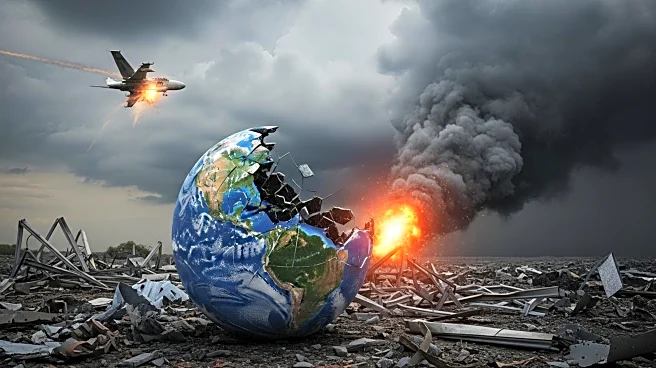What is the story about?
What's Happening?
The Houthi rebel movement in Yemen has confirmed the death of its self-proclaimed Prime Minister, Ahmed Ghaleb Nasser al-Rahawi, following an Israeli airstrike on Thursday. The strike targeted a military site in Sanaa, killing several senior officials. The Houthis have controlled much of north-western Yemen since 2014, following a civil war that ousted the internationally recognized government. The Israeli Defense Forces (IDF) have not commented on the latest developments but previously stated the strike aimed at a Houthi military target. The Houthis have been launching missiles at Israel, claiming solidarity with Palestinians, which has led to Israeli retaliatory strikes.
Why It's Important?
The confirmation of al-Rahawi's death underscores the escalating conflict between the Houthis and Israel, which has broader implications for regional stability. The Houthis' missile attacks on Israel and commercial ships in the Red Sea have heightened tensions, affecting international trade routes and security. The Israeli airstrikes aim to deter Houthi aggression, but the ongoing conflict risks further destabilizing Yemen and exacerbating the humanitarian crisis. The situation reflects the complex geopolitical dynamics in the Middle East, involving Iran's support for the Houthis and Israel's strategic military responses.
What's Next?
The Houthis may continue their missile attacks, prompting further Israeli military actions. The international community might increase diplomatic efforts to de-escalate the situation and address the humanitarian needs in Yemen. The conflict could influence regional alliances and impact peace negotiations, with potential involvement from other Middle Eastern countries. Humanitarian aid delivery may face challenges due to security concerns, affecting the civilian population in Yemen.














